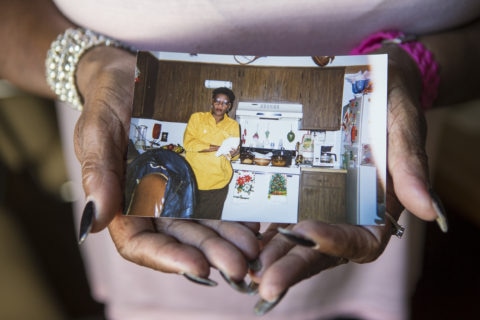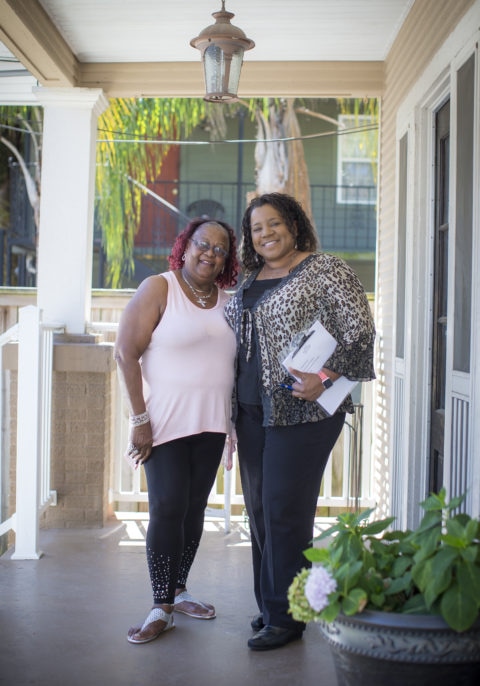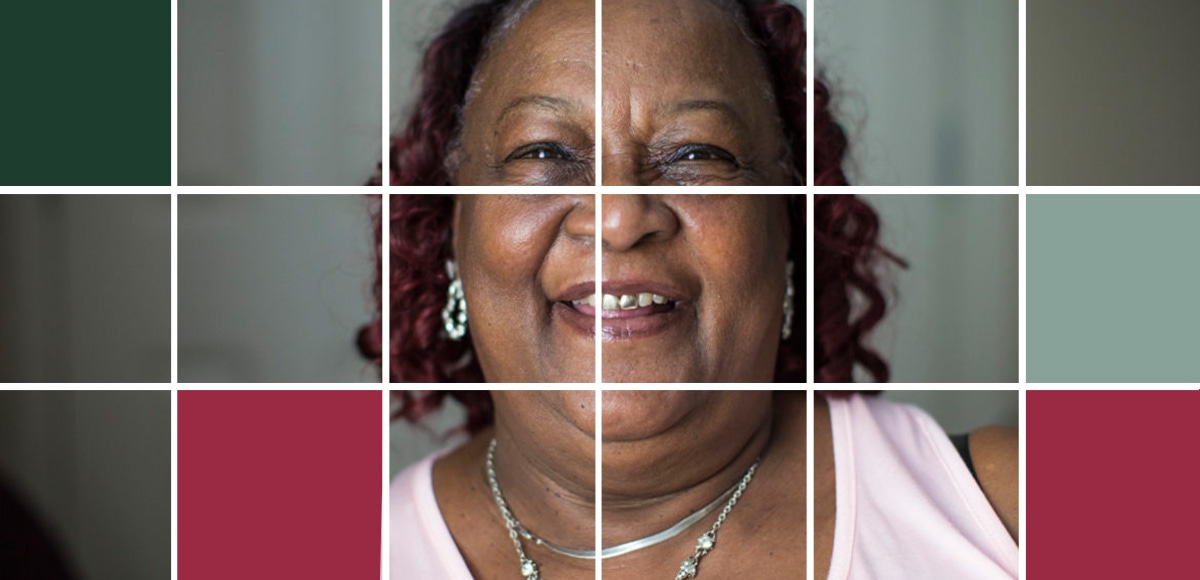Published in our 2017 Annual Report.
On the surface, Cynthia and her husband had it all – successful jobs, a nice house and two cars. Her husband owned a barber shop and Cynthia worked full time. They are the parents of two beautiful daughters.
Below the surface, things weren’t as ideal. Cynthia was a recreational smoker of marijuana. One day, her supplier brought her something he thought she might like better. Cynthia was hesitant but eventually agreed to try the new mystery drug. Unknowingly, Cynthia tried crack.
Over time, she became addicted. While her husband was at work and her children were at school, she would leave work to smoke in their empty house. When her paycheck began running short, she started selling odds and ends to pay for her addiction. “I was selling anything…anything I could…just to get that high,” she admits. “I needed it daily.”
Selling odds and ends turned into selling precious jewelry, televisions and appliances. When her husband noticed things disappearing, he confronted her. She felt guilty lying to him about her addiction, but she needed the money.

Cynthia holds a photo of herself at the height of her addiction.
She became noticeably emaciated, and her children were teased about their drug addicted mother, but she couldn’t stop.
When a family member died, she was too high to attend the funeral. When her youngest daughter graduated high school, she was too high to make the ceremony. When her oldest daughter had a baby, she left the hospital to take drugs and was too high to return.
Even still, she couldn’t stop.
It wasn’t for lack of trying. Cynthia checked into rehabilitation facilities three separate times and graduated from each one. After graduating from one program in Alabama, she was clean for three months.
But once she returned to her home, which now had no power and virtually no possessions, she reverted to her old ways. Her husband of 30 years left her and a drug dealer moved into the house. Her daughters became estranged as they watched their mother struggle.
Cynthia hit a turning point shortly before Hurricane Katrina. With the hope of getting her life in order, she turned to Catholic Charities Archdiocese of New Orleans’ Voyage House, which provides permanent supportive housing to homeless women struggling with substance abuse and other issues.
Unfortunately, this time turned out the same as those before. Cynthia quickly returned to a life of sleeping on friends’ couches, begging for money to buy drugs and constantly seeking a high. “I wanted a hit at all costs,” she says.
Finally, after a drug deal nearly turned deadly for Cynthia, she knew it was time to make a change and she needed it to be real this time.
“I was sick and tired of being sick and tired,” she says of herself at the time. “I couldn’t look at myself, but what could I do?”
She got a ride to her daughter’s house but her daughter refused to let her in. She broke down crying and begged her daughter, “Please, I’m ready.”
In need of housing, counseling and more, Cynthia was referred to Voyage House for the second time. “I ended up in the same room, same bed as the first time I tried to go there, but I was ready this time,” she says.
Cynthia worked with the staff at Voyage House for about a year getting clean and taking steps to mend her relationships. In her time there, she developed positive relationships with the other women in the program. They were open, honest and nonjudgmental, which allowed Cynthia to speak about her addiction without fear of ridicule or disdain.
As she worked through her issues, Cynthia’s true personality began to shine. She became a natural leader, organizing events including a Mother’s Day fashion and talent show, which allowed the women to spend time having fun with their families and heal.
She pushed the other women to get involved in the program’s different activities and to make changes in their own lives as she was making in hers.

Cynthia (L) and Alecia Blanchard (R)
Voyage House’s Administrator, Alecia Blanchard, was there for Cynthia from the day she checked in to the day she moved into her own apartment. She continues to check on her regularly and marvels at her progress.
“We know these women may be broken and feel like there’s no hope, but we see the greatness that lives inside of them,” Blanchard says of her work at Voyage House. “We’re always open to help someone who wants to help themselves, and Cynthia wanted to help both herself and her family. She’s operating now from that place of greatness inside of her, and she has so many good things.”
Drug-free for over 10 years, Cynthia now has a part-time job, an apartment and a car. To her, the most important thing she’s regained in her sobriety is her family’s respect. “I wouldn’t trade this lifestyle I have now. I have respect from my children and my grandchildren. I’m glad I get to be here for them,” she says, smiling.
Cynthia has friends and family that are still addicted but she doesn’t shy away from them. Instead, she tells them her story. “If you put your mind to it, you can do it, too,” she says of those struggling. “I hope maybe I’m an inspiration.”






